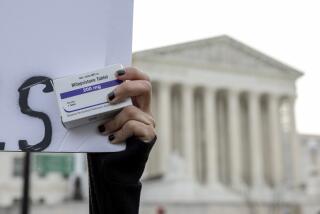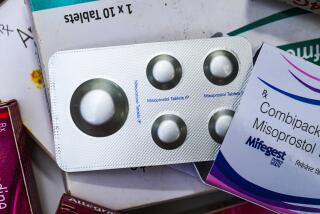Generic drug ruling leaves out consumers
Even Clarence Thomas, the Supreme Court justice who wrote the majority opinion saying that makers of generic drugs don’t have to warn patients about newly discovered dangers, agreed that the idea made little sense. How is it that the maker of a brand-name pharmaceutical has to provide information about potential side effects but the companies that produce identical drugs don’t? If this is the price the public is expected to pay for cheaper drugs, it’s far too high.
In a 5-4 decision issued last week, the court rejected lawsuits by two women who suffered serious side effects from generic versions of a medication used for stomach ailments. The women claimed that state law in Minnesota and Louisiana required all drug manufacturers to update their warning labels when they have new information about potential dangers. But the court noted that federal law put the generic drug makers into a bind by requiring such medications to carry the exact same warning labels as their brand-name equivalents. Brand-name drug makers are held responsible for giving consumers updated warnings, but what happens when a generic manufacturer discovers new problems with the same medication?
The court rightly said that when federal and state laws conflict, the former takes precedence. And it would indeed be strange and confusing for identical drugs to carry different warnings. But there was nothing to keep the makers of these generic drugs from bringing key consumer safety information to the U.S. Food and Drug Administration, or from contacting the brand-name maker to suggest a label change, both of which they failed to do.
If the federal rules don’t do enough to protect consumers, manufacturers — of medicine or anything else — have a moral responsibility to protect the public from being harmed by their products. Any drug company that discovers a previously unknown danger from its medications should be required under federal law to report the information quickly to the FDA and recommend a label change; the agency should then require uniform warning labels by all the affected pharmaceutical companies. Generics should not be known as buy-at-your-own-risk drugs.
More to Read
A cure for the common opinion
Get thought-provoking perspectives with our weekly newsletter.
You may occasionally receive promotional content from the Los Angeles Times.






